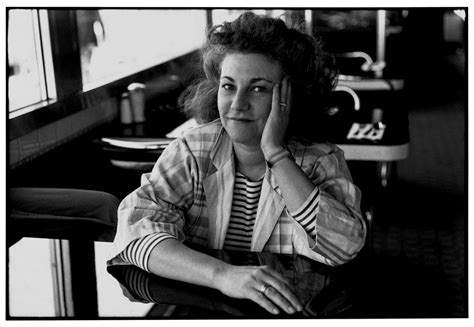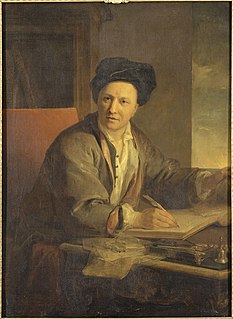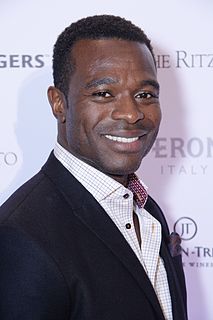A Quote by James Thurber
It takes that je ne sais quoi which we call sophistication for a woman to be magnificent in a drawing-room when her faculties have departed but she herself has not yet gone home.
Related Quotes
There is really a je ne sais quoi about turkey cooking - the air of festivity, the family squabbles, the constant basting - that does not apply to the turkey breast, which is, really, a convenience of food... A turkey without seasonal angst is like a baseball game without a national anthem, a winter without snow, a birthday party without candles.
Voice is the je ne sais quoi of spirited writing. It separates brochures and brilliance, memo and memoir, a ship's log and The Old Man and the Sea. The best writers stamp prose with their own distinctive personality; their timbre and tone are as recognizable as their voices on the phone. To cultivate voice, you must listen for the music of language-the vernacular, the syntactic tics, the cadences.
In domestic life, the woman's value is inherent, unquantifiable; at home she exchanges proven values for mythological ones. She 'wants' to be at home, and because she is a woman, she's allowed to want it. This desire is her mystique, it is both what enables her to domesticate herself and what disempowers her.
In domestic life the woman's value is inherent, unquantifiable; at home she exchanges proven values for mythological ones. She "wants" to be at home, and because she is a woman she's allowed to want it. This desire is her mystique, it is both what enables her to domesticate herself and what disempowers her.
When you write, it’s like braiding your hair. Taking a handful of coarse unruly strands and attempting to bring them unity. Your fingers have still not perfected the task. Some of the braids are long, others are short. Some are thick, others are thin. Some are heavy. Others are light. Like the diverse women of your family. Those whose fables and metaphors, whose similes and soliloquies, whose diction and je ne sais quoi daily slip into your survival soup, by way of their fingers.
I value in the cat the independent and almost ungrateful spirit which prevents her from attaching herself to any one, the indifference with which she passes from the salon to the housetop. When we caress her, she stretches herself and arches her back responsively; but this is because she feels an agreeable sensation, not because she takes a silly satisfaction, like the dog, in faithfully loving a thankless master. The cat lives alone, has no need of society, obeys only when she pleases, pretends to sleep that she may see more clearly, and scratches everything on which she can lay her paw.
L'univers?je l'en estime plus depuis que je sais qu'il ressemble a' une montre; il est surprenant que l'ordre de la nature, tout admirable qu'il est, ne roule que sur des choses si simples. I have come to esteem the universe more now that I know it resembles a watch; it is surprising that the order of nature, as admirable as it is, only runs on such simple things.
It was so important that women were involved in 'She's Gotta Have It' because it's about a woman's opinion. It's about her views of herself, and the world around her, and how the world perceives her, and finding that ground for herself - not even a common ground, but that ground for herself in which she can walk on firmly with confidence.
The extraordinary woman depends on the ordinary woman. It is only when we know what were the conditions of the average woman's life - the number of children, whether she had money of her own, if she had a room to herself, whether she had help bringing up her family, if she had servants, whether part of the housework was her task - it is only when we can measure the way of life and experience made possible to the ordinary woman that we can account for the success or failure of the extraordinary woman as a writer.
































